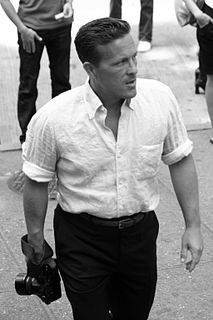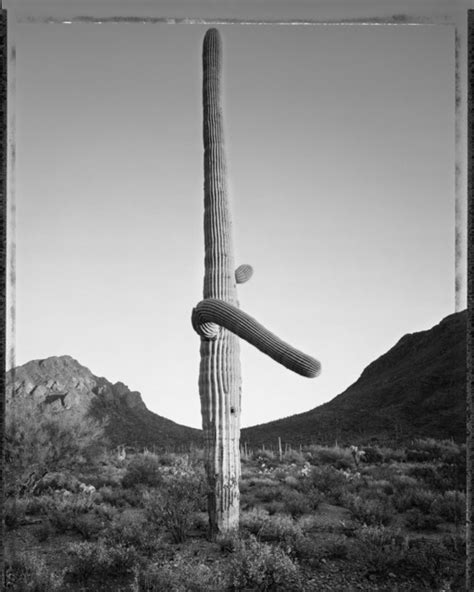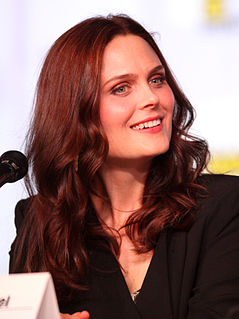A Quote by Ani DiFranco
One thing I do find in the "lost" generation or something is a kind of abhorrence of history, you know, like it's boring, dumb, or just not interesting. I think it's terribly interesting if you can get your head around how it relates to where you're standing right here and now.
Related Quotes
Evil is not interesting. What is it, chopping off someone's head? We used to do that as kids, you know, you tear up paper dolls and stuff. I know everyone's done it in the history of the world, but maybe everybody was dumb and they were just looking for something interesting to do. What's really interesting and hard is being good.
I write about people I think are interesting, and then I discuss it with my editor, and she decides if she thinks it will be interesting to children as well. If I have no great interest in the subject, I find the work to be terribly boring. And if I find the person interesting, I love the research part and, by extension, the writing as well.
Life is very tough, you know. You sit at a dinner party and talk to the person on your right or your left, you're going to hear something terribly sad, or horrible, or awful. And you just laugh at everything. I think it was Winston Churchill who said something like, any time you get someone to laugh, you're giving them a little vacation. It's so true. You laugh for one second, you're happy. I find in negotiations, everybody's sitting around looking so serious, I say something funny and it breaks the ice. And it's like, now we can get through this.
Sometimes the work can get in the way and you give a less-good performance, and sometimes it doesn't and you can really get to the heart of something. And all the other stuff is just interesting and adds another layer to your performance. It helps you find the reality. Because you're not just playing yourself, you know? That would be kind of boring.
I always find it kind of more interesting when people ask questions like, "What were you like as a kid?" Or just kind of personal history stuff, like, "What was the lowest point of your life?" Because that would be like, "Huh, well, I'd have to think about that one." And then give an honest answer. I think a lot of people don't want to give honest answers, or they just are in business showbiz mode when they're talking about stuff, so that's probably why a lot of that kind of thing doesn't get asked.
I'm selfish, I think. I think an artist has to be. I'm not worried about what people think. I play the parts that I find interesting. It'd bother me more to be just pigeonholed into doing what people think is ethical or that's boring to me. I don't pick parts with that in mind, I just find interesting stories. If it's interesting to me, then I do it.
We want to do things that are interesting, great storytelling, some of it is gonna be more fun and funny, some of it is more serious and talking about interesting issues that we think are provocative and interesting to us. Kind of on a more political level. But, you know, just things that we find interesting that we think stories that need to be told.
If you're a poet, you do something beautiful. I mean, you're supposed to leave something beautiful after you get off the page and everything. The ones you're talking about don't leave a single, solitary thing beautiful. All that maybe the slightly better ones do is sort of get inside your head and leave something there, but just because they do, just because they know how to leave something, it doesn't have to be a poem for heaven's sake. It may just be some kind of terribly fascinating, syntaxy droppings--excuse the expression. Like Manlius and Esposito and all those poor men.
The difference between what designers create are you know they're creating a little world every season, you know head to toe, a full look, shoes bags, dresses, the whole thing whereas street fashion is what people are really wearing. There is an element of new. There is an element of previous seasons. There is your own history, you know your sweatshirt from high school and vintage pieces and it's that kind of combination that I find so much more interesting than just the runway, but you know and I love fashion.
I would never talk just to be social. Now, to sit down with a bunch of engineers and talk about the latest concrete forming systems, that's really interesting. Talking with animal behaviorists or with someone who likes to sail, that's interesting. Information is interesting to me. But talking for the sake of talking, I find that quite boring.
I think in Japan I think there is a lot of style and a lot of subcultures, but it will be interesting to see how much of them... how much of the people wearing those clothes are really expressing something about who they are or who they want to be and it will be very interesting to see, especially once you get there, once you get to a certain city like in Stockholm you really get to know the people a little bit and what they're saying through their clothes. It's more... To me I think it's much more interesting than just the clothes they're wearing or the length of the skirt.
I always think it's interesting to switch genres, because if I read a script and I know exactly how to manifest a story, I don't really want to do it anymore, because I've already done it in my head. It becomes less interesting. If I read something that's challenging, I get really passionate and usually fall in love with it, because I feel I need to do it. I need to tell the story; I need to find a way to make it happen.
So much of what we know, and what we think we know, about the land has first passed through someone's lens. The interesting thing is to make use of this history, not merely to be absorbed into it. For me, landscape photographs begin as the artifacts of personal moments. They get interesting when they become cultural commentary.
It can sometimes make people fold into themselves and kind of run away, but I think in this case these characters are being forced to face issues and emotions, feelings, that they have. So it kind of forces them to face it head on, which I think is a really interesting dynamic. And I think it should be interesting and probably a good thing for the relationship.



































